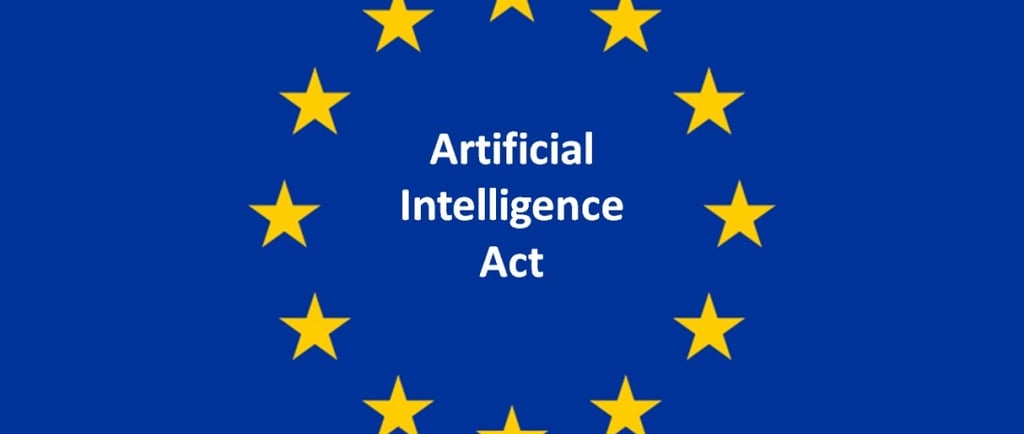European Union Sets Global Standard with Historic Artificial Intelligence Act
Discover how the EU's Artificial Intelligence Act, the first of its kind globally, introduces a risk-based regulatory framework for AI applications, fostering innovation while ensuring safety and ethical standards. Learn about its impact on AI development and usage across Europe.
Faheem Hassan
3/22/20242 min read


Unveiling the European Union's Artificial Intelligence Act: A Milestone in Global AI Regulation
April 2024 marked a significant milestone in the history of artificial intelligence (AI) regulation as the European Union (EU) adopted the world's first comprehensive law on AI, known as the Artificial Intelligence Act. This pioneering regulation is set to establish a robust regulatory framework for AI applications across the member states, aiming to balance the scales between fostering innovation and addressing the potential risks associated with AI technologies.
A Closer Look at the AI Act's Risk-Based Classification
At the heart of the EU's Artificial Intelligence Act is its novel approach to categorizing AI applications based on the level of risk they pose. The Act identifies three main risk categories: unacceptable risk, high risk, and low risk, each carrying different implications for AI developers and users within the EU.
Unacceptable Risk: This category includes AI applications deemed too harmful to be allowed, such as social scoring systems that could potentially infringe on individual rights and freedoms. Such applications are outright banned under the new law.
High Risk: High-risk applications, which include AI-driven recruitment tools and critical infrastructure monitoring systems, are subject to stringent regulations. These measures aim to ensure fairness, transparency, and accountability, safeguarding the rights of EU citizens while allowing for the responsible use of AI.
Low Risk: For AI applications posing minimal risk, the Act imposes minimal regulations, thereby encouraging innovation and the development of new technologies without overburdening developers with regulatory compliance.
Balancing Innovation with Risk Mitigation
The European Union's Artificial Intelligence Act represents a groundbreaking attempt to navigate the complex terrain of AI regulation. By categorizing AI applications based on risk, the EU seeks to encourage the development of new and innovative technologies while ensuring they are deployed responsibly. This balanced approach is crucial for mitigating potential risks associated with AI, such as bias, privacy infringements, and other ethical concerns.
Looking Ahead: The AI Act's Impact on the Future of AI in Europe
With the AI Act expected to come into full effect by mid-2026, the EU is positioning itself as a global leader in the ethical and responsible governance of AI technologies. The Act not only sets a precedent for other countries to follow but also establishes a clear framework within which AI can flourish in a manner that is safe, transparent, and beneficial for all.
In conclusion, the European Union's Artificial Intelligence Act is a landmark piece of legislation that aims to strike a delicate balance between the promotion of technological innovation and the mitigation of risks posed by AI. As the world's first comprehensive law on AI, it paves the way for a future where AI technologies can be harnessed responsibly, ensuring they contribute positively to society while safeguarding against potential harms. The AI Act is a testament to the EU's commitment to leading by example in the ethical governance of emerging technologies.
